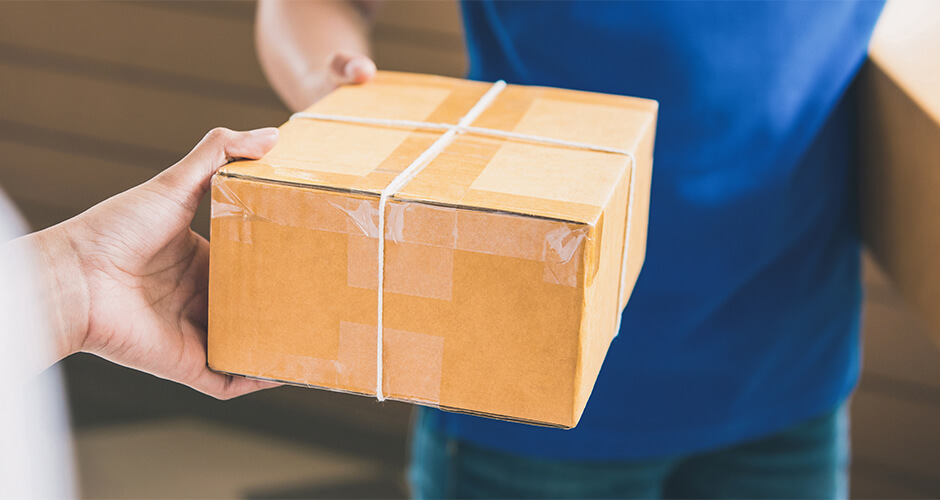Selling In A World Without Borders: Getting Started With Ecommerce
Selling In A World Without Borders: Getting Started With Ecommerce
In this post, we guide you through how your business can adopt ecommerce, with insights from successful business owners and leading business experts.
According to a 2018 study conducted by Google and Temasek Holdings, the Internet economy in Singapore reached US$10 billion in 2018. What’s more, this market is projected to rapidly increase to US$22 billion in 2025.
Looking forward, businesses should look to ride on the rise of ecommerce here and in the region. But what’s the best way to get your business started?
From establishing your online store to acquiring customers to delivering your products to customers, we spoke to our panel of successful business owners and leading subject experts to bring you their unique insights into ecommerce.
Ready to read more? Let’s jump in.
Building Your Own Shop
For businesses looking for full control of their ecommerce presence, building your own online store makes a lot of sense. You can shape up your brand and decide how you market your products. Having your own online store gives you access to markets which you are unable to establish a physical presence.
That has been the case for local jeweller Gordon Max. Having an online store allows them to reach out to customers in countries where they have no market access. Its founder, Ms. Kellin Koh, shared: “We used to have a franchisee in Australia. Now we are no longer there, but our Australian customers continue to buy from us through our online store.”
With ecommerce platforms such as Shopify, you can set up your own online store in a matter of minutes, even if you lack technical know-how. But setting up your online store is just the start. There’s still the matter of marketing your business.
Ms. Sarah Tan, Market Development Manager for Shopify in Singapore, shared. “One common misconception made by SMEs in setting up an online store is to have the ‘Build And They Will Come’ mentality. Simply having a presence online doesn't guarantee buyers will find your ecommerce store on the vast landscape that is the Internet.”
This is why the Shopify comes with digital marketing tools such as a blog builder, SEO (search engine optimisation) tools and integrations with Facebook Ads.
"One common misconception made by SMEs in setting up an online store is to have the ‘Build And They Will Come’ mentality. Simply having a presence online doesn't guarantee buyers will find your ecommerce store on the vast landscape that is the Internet.
— Ms. Sarah Tan / Market Development Manager for Shopify
Selling On Marketplaces
Investing in marketing can is essential to the success of your website. Another way to increase your reach is to list on marketplaces such as Lazada, Qoo10 and Shopee.
Mr. Donald Chan, founder of Impact! Brand Communications, shared: “The fact of the matter is that, even if you set up your own store, if you’re a brand that no one has heard of before, there will be no one visiting your site. If you want to clear the hump, go and participate in the marketplaces. But where possible, drive people back to your store. It comes down to going where the consumers are.”
There are several key advantages when it comes to selling on marketplaces. For one, these marketplaces enjoy significant user traffic, with their own pool of existing customers. Another key advantage is that consumers are more willing to buy from marketplaces due to their built-in seller ratings and user reviews systems. The presence of online reviews provide a layer of social proof to assure users on the trustworthiness of sellers and quality of goods sold.
On the flip side, there are also some disadvantages associated with selling on marketplaces.
Apart from the (sometimes high) fees that you have to pay and competitors whose listings are lined up right next to yours, you may also take a longer time to receive payments, as some marketplaces will hold on to your payment until the buyer acknowledges receipt or a period of time has passed. You need to consider all these in your cashflow management.
Signed, Sealed, Delivered

Before you take in orders, think about how you are going to deliver the goods.
Thankfully, the logistics industry in Singapore has developed significantly in the last few years, with players in the ecommerce niche.
Mr. Lai Chang Wen, co-founder and CEO of Ninja Van, shared his thoughts on what makes a good logistics partner: “For SMEs, the delivery service should be easy to use and not require much thinking about. If you have to think a lot about how to use the system, how to work the interface, it gets very troublesome and that's not a good express logistics provider.”
And if you’re thinking whether it’s more cost effective to deliver your own goods or to outsource to a logistics provider, Chang Wen shared this anecdote from their early days.
“If you have 30 orders from all over Singapore, there is no way you can deliver that all in a day. When we first started, we tried that with 2 persons and could barely manage 20 deliveries a day. Today, with the use of technology and systems and processes though, our drivers can make more than 100 deliveries per day.”
"For SMEs, the delivery service should be easy to use and not require much thinking about. If you have to think a lot about how to use the system, how to work the interface, it gets very troublesome and that's not a good express logistics provider.
— Mr. Lai Chang Wen / Co-Founder and CEO of Ninja Van
Summing Things Up
With the projected growth of the ecommerce in Singapore and around the region, SMEs should look to start sooner rather than later.
The entry barriers to getting started in ecommerce have also never been lower, with plug-and-play ecommerce platforms like Shopify and ecommerce logistics providers such as Ninja Van. With this and more, it’s time to set up an online sales channel to complement your brick-and-mortar stores.
Disclaimer
You may be directed to third party websites. OCBC Bank shall not be liable for any loss suffered or incurred by any party for accessing such third party websites or in relation to any product and/or service provided by any provider under such third party websites.
Any opinions or views of third parties expressed in this article are those of the third parties identified, and not those of OCBC Bank. The information provided herein is intended for general circulation and/or discussion purposes only. Before making any decision, please seek independent advice from professional advisors.
No representation or warranty whatsoever in respect of any information provided herein is given by OCBC Bank and it should not be relied upon as such. OCBC Bank does not undertake an obligation to update the information or to correct any inaccuracy that may become apparent at a later time. All information presented is subject to change without notice. OCBC Bank shall not be responsible or liable for any loss or damage whatsoever arising directly or indirectly howsoever in connection with or as a result of any person acting on any information provided herein. Any reference to any specific company, financial product or asset class in whatever way is used for illustrative purposes only and does not constitute a recommendation on the same.
Discover other articles about:



